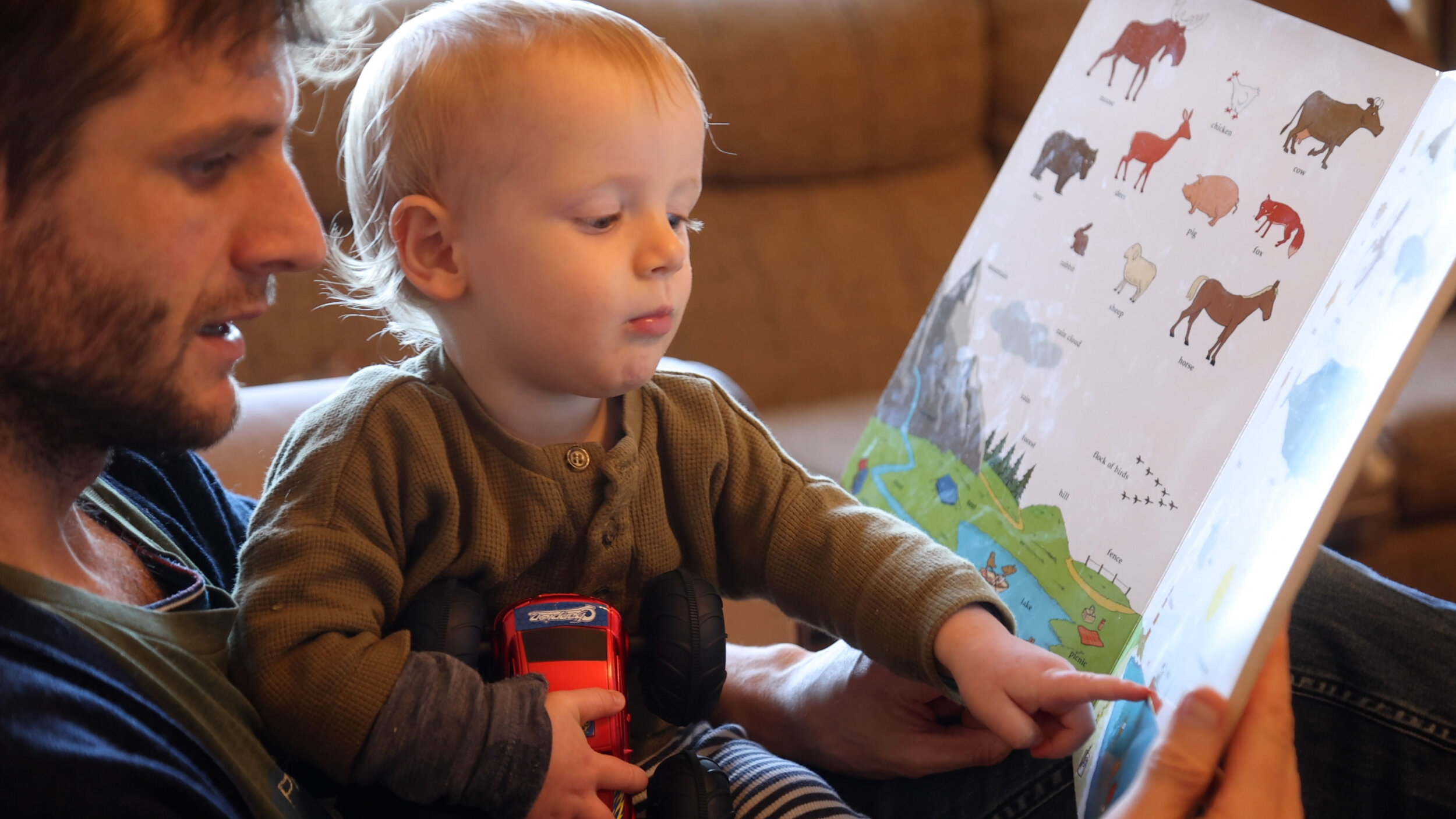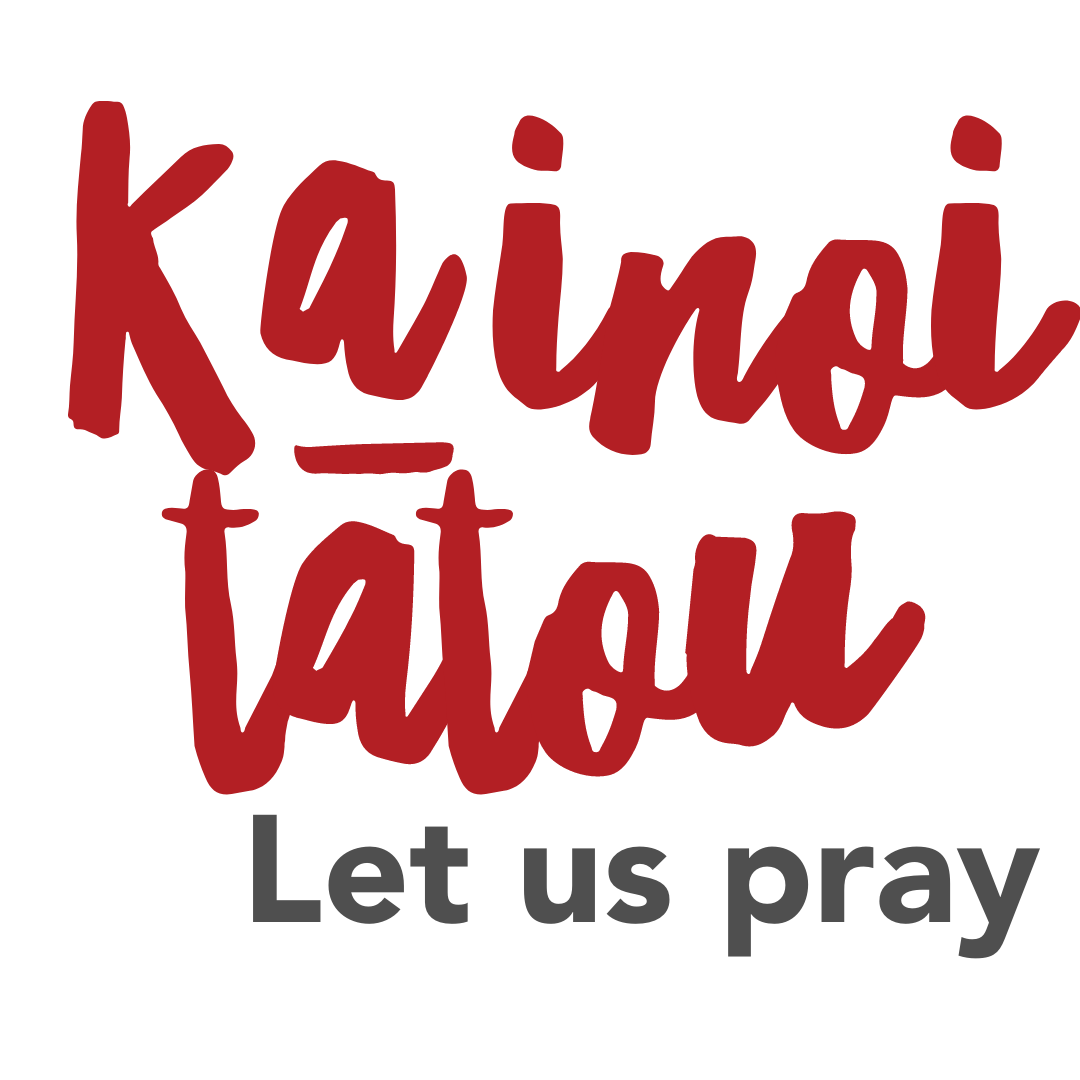Reducing the family footprint: Kate and John-Luke’s story
Kate and John-Luke Day live in Wellington, and are part of our St Tom's church whānau in Newtown. When they were holidaying in a small South Island village last year, a wildfire swept through the area overnight. Everyone was saved, but the village was destroyed. The wildfire was caused by unseasonably warm, dry conditions - a symptom of climate change.
John-Luke Day reads to his son Wilfred.
"It was a wake up call because it had been unseasonably dry and those kind of weather events will become more and more frequent with the climate warming up, but for us it kind of highlighted that although we've been aware of climate change and even working in that in that area, our personal lifestyles didn't reflect the urgency of the issue, the life or death nature of the of the issue," Kate told us. "When you know it is contributing to more and more of these events that will fundamentally change people's lives, we wanted to level up our response and to make it proportionate."
Driving their response to the climate crisis is their faith, John-Luke says. "As followers of Jesus, what we're trying to do is to align our hearts toward what God cares about, and when it comes to climate change, there are no issues that we face as humanity that will affect the most people in the most ways. Particularly it's the global poor that are going to be suffering the worst effects of climate change."
"These are people really close to God's heart. And this world that we've been given is such an amazing gift from God - and we've been given an instruction to cherish it. So our faith is really fundamental to our response to the climate crisis and a huge motivating factor."
The challenge of tackling their family carbon footprint seemed like a daunting one, John-Luke told us. There were so many areas of their lives where their choices were making an excessive contribution to carbon emissions, but once they realised that they only needed to take one step at a time, it became easier. "Don't be overwhelmed because these things will become second nature. It's actually relatively easy to adapt," John-Luke told us.
The family had already acknowledged the parts of their lifestyles that were positive - they enjoyed cycling and they ate relatively low amounts of meat. "A big part of our carbon footprint comes from intensive agriculture, so particularly gases like methane, nitrous oxide... and I think we just realised that trying to avoid that really intensive industrial agriculture can really reduce the the carbon footprint of our diet," Kate explained.
The biggest change they made was to sell their car, and purchase an e-bike. John-Luke showed us the model of bike they chose - called a "Spicy Curry" cargo bike, and explained its features. It has plenty of room for a child's seat on the back as well as pannier bags and a front tray for cargo, so they can put their son Wilfred in the back and do the grocery shopping at the same time.
They also chose to reduce the amount of flying they do as a family, which has been a hard decision given that much of their family resides in the South Island. "Previously we were flying several times a year to see family in the South Island. So instead of flying, we're hiring a car and taking the ferry or taking the train," Kate tells us. "[It] just requires a lot more thinking about how we travel. [But] that's worth it because it keeps that pollution out of the air that's going to last for hundreds or thousands of years." They considered off-setting as well, but Kate explained that the urgency of the climate crisis means that it will take too long for the trees planted in lieu of their carbon emissions to grow, and thus absorb that amount of carbon. By then, the planet will have already run out of time.
The journey hasn't been all plain sailing, they tell us. "It felt quite frustrating at first to think about my own lifestyle or our lifestyle as a family. Given the scale of the changes that are needed from governments and companies, it felt like a drop in the bucket to do anything ourselves. But my thinking has come round on there, I think because of the influence that we can have for other people and showing that climate change is a really big deal and something that God cares about," Kate said.
Giving them some additional motivation is their nearly two-year-old son, Wilfred. "Although being a parent is busy, and it can be stressful and hard to make lifestyle changes, it has actually been a really good motivating factor for us," John-Luke told us. "Being parents gives perspective on the issue - that what we are doing today is going to affect future generations, our children, our children's children." And in thinking about their family, it's the values and vision of their household that forms the bedrock of their decision-making. "Like any family, we want to establish some norms about who we are and what we do. And this is how we think the best way is to live," John-Luke explains. "What we do is we live in sympathy with the planet and we live in a way that cares for God's creation.... It's just who we are."
As we consider our households' responses to climate change, pray that God grants us wisdom in making choices that honour Him and help us steward His creation.




